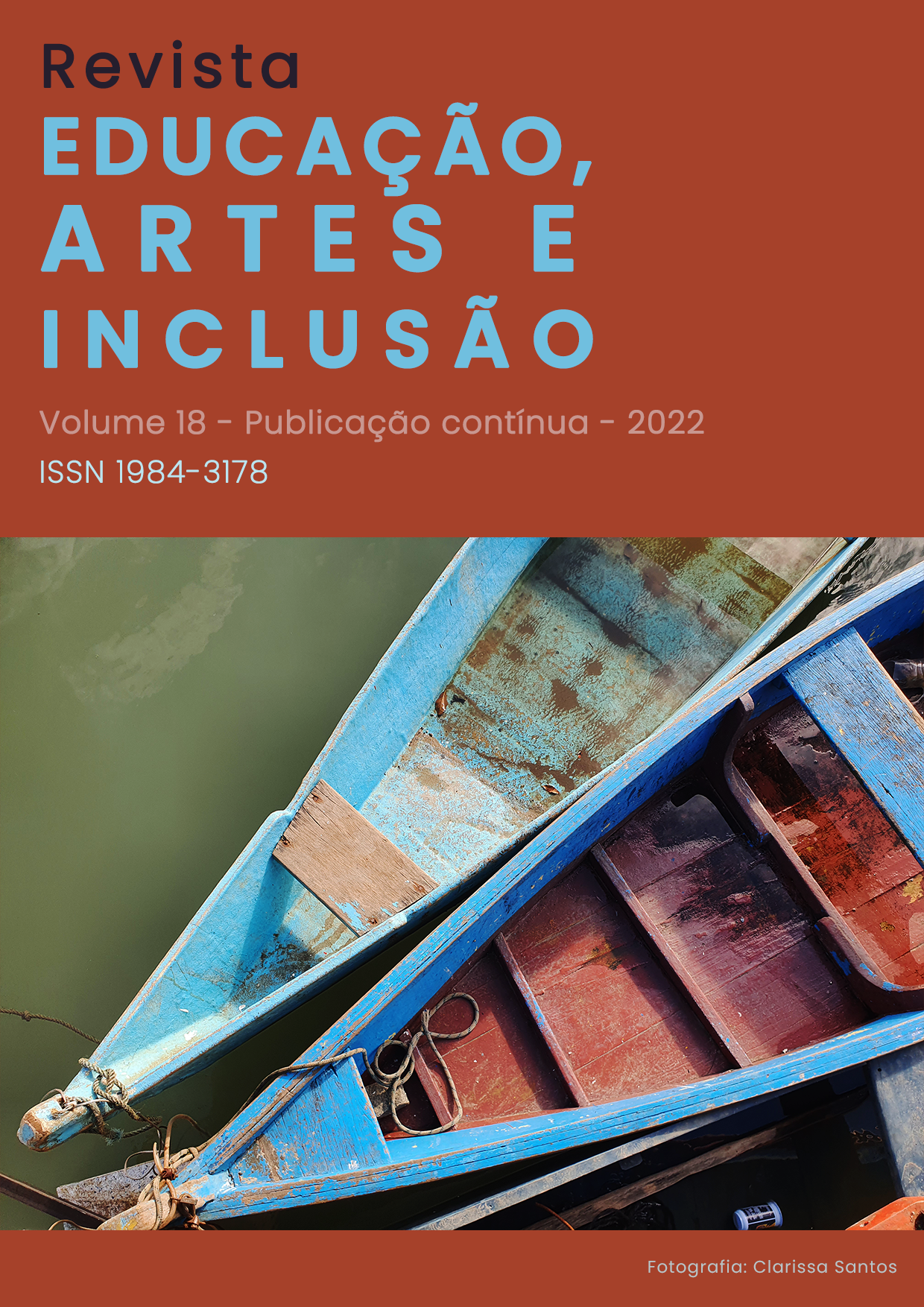Banda de música: educação musical como instrumento de liberdade e superação em meio aos jovens do campo
DOI:
https://doi.org/10.5965/19843178182022e0035Palavras-chave:
Didática musical, Banda de música, Ensino coletivo, Educação rural, Mestres de bandaResumo
Este artigo revela as reflexões e os resultados de uma pesquisa de mestrado realizada em 2017 a respeito da didática aplicada na formação humana e musical de jovens oriundos do distrito de Guanacés, na cidade de Cascavel – Ceará, membros de uma Banda de Música mantida pela Sociedade de Assistência e Educação Rural - SAERG. A Banda de Guanacés tornou-se relevante como proposta de investigação por promover, por meio de seu regente, ações que permitem sua resistência ao tempo e às dificuldades, transformando a vida de muitos jovens e seus familiares com o ensino da música. O objetivo da pesquisa foi conhecer e analisar as estratégias didático-pedagógicas do maestro, em um estudo de caso etnográfico através de uma abordagem qualitativa. Utilizamos os estudos de Paulo Freire (2003, 2015) e Vygotsky (1999, 2001), para tratarmos sobre o conhecimento social construído na área rural e o princípio da dialogicidade defendida como instrumento de liberdade dos sujeitos. Os resultados da pesquisa demonstraram que o trabalho didático promovido pelo maestro contribui significativamente para a formação humana e musical dos integrantes da Banda de Guanacés e desempenha um papel fundamental na transformação individual e coletiva do contexto socioeducacional.
Downloads
Referências
BESSA, Evânio Reis et al. Cascavel 300 Anos. Fortaleza: Universidade de Fortaleza, 2001.
BOGDAN, R; TAYLOR, S. Introduction to qualitative research methods: a phenomenological approach to the social sciences. New York: J. Wiley, 1975.
CARVALHO, Vinícius Mariano de. A música militar na Guerra da Tríplice Aliança: notas documentais e manuscritos revelados. Belo Horizonte: Editora PUC Minas, 2018.
FREIRE, Paulo. Pedagogia do oprimido. 59ª ed. Rio de Janeiro/São Paulo: Paz e Terra, 2015.
______. Pedagogia da autonomia: saberes necessários à prática educativa. São Paulo: Paz e Terra, 2003.
NASCIMENTO, M. A. T. Método Elementar para o Ensino Coletivo de Instrumentos de Banda de Música “Da Capo”: um estudo sobre sua aplicação. 2007. Dissertação (Mestrado em Música) - Programa de Pós-Graduação em Música, Universidade Federal do Estado do Rio de Janeiro (Unirio), 2007.
VYGOTSKY , L. A Formação Social da Mente. São Paulo: Martins Fontes, 1999.
VYGOTSKY, L.; LEONTIEV, A.; LURIA, A. Linguagem, desenvolvimento e aprendizagem. São Paulo: Icone, 2001.
YIN, R. K. Estudo de caso: planejamento e métodos. Tradução Daniel Grassi. 3. ed. p. 32. Porto Alegre: Bookman, 2005.
Downloads
Publicado
Como Citar
Edição
Seção
Licença
Copyright (c) 2022 CRISTIANE SOARES GONÇALVES, MARCO ANTONIO TOLEDO NASCIMENTO

Este trabalho está licenciado sob uma licença Creative Commons Attribution-NonCommercial-ShareAlike 4.0 International License.
A Revista Educação Artes e Inclusão é um periódico que segue a Política de Acesso Livre. Os artigos publicados pela revista são de uso gratuito, destinados a aplicações educacionais e não comerciais. Os artigos cujos autores são identificados representam a expressão do ponto de vista de seus autores e não a posição oficial da Revista Educação, Artes e Inclusão [REAI].
Autores que publicam nesta revista concordam com os seguintes termos:
(a) Autores mantém os direitos autorais e concedem à revista o direito de primeira publicação, com o trabalho simultaneamente licenciado sob a Licença Creative Commons Attribution que permite o compartilhamento do trabalho com reconhecimento da autoria e publicação inicial nesta revista.
(b) Autores têm autorização para assumir contratos adicionais separadamente, para distribuição não-exclusiva da versão do trabalho publicada nesta revista (ex.: publicar em repositório institucional ou como capítulo de livro), com reconhecimento de autoria e publicação inicial nesta revista.
(c) Esta revista proporciona acesso público a todo o seu conteúdo, uma vez que isso permite uma maior visibilidade e alcance dos artigos e resenhas publicados. Para maiores informações sobre esta abordagem, visite Public Knowledge Project.
Esta revista está licenciada com uma Licença Creative Commons Atribuição-NãoComercial 4.0 Internacional. Esta licença permite que outros remixem, adaptem e criem a partir do seu trabalho para fins não comerciais, e embora os novos trabalhos tenham de lhe atribuir o devido crédito e não possam ser usados para fins comerciais, os usuários não têm de licenciar esses trabalhos derivados sob os mesmos termos.





